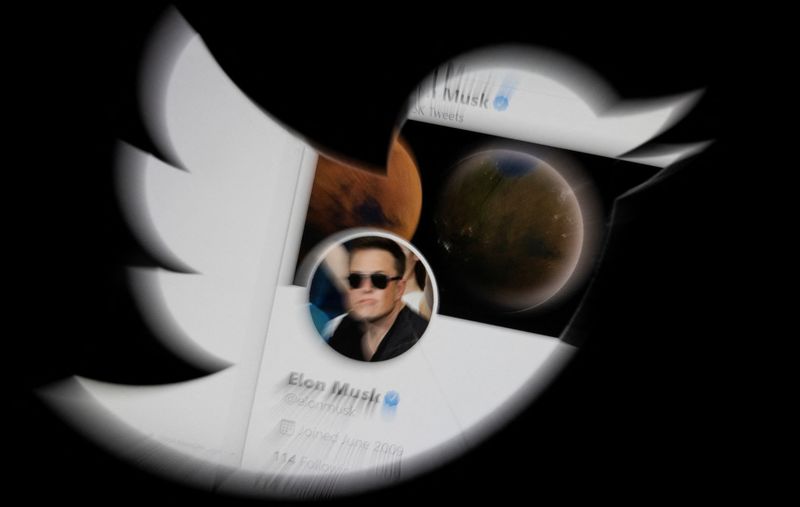(Reuters) -Advertisers could be reluctant to spend on Twitter (NYSE:TWTR) if Elon Musk pushes ahead with plans to promote unfettered speech on the social media platform, analysts said, after the world's richest person clinched a deal to buy the company for $44 billion.
Although Musk, a self-proclaimed free speech absolutist, has not given details on how he plans to "improve and fix" Twitter, he has repeatedly called out the micro-blogging platform for not doing enough on free speech and criticized its content moderation policies.
Advertising is Twitter's main source of revenue, and analysts fear that unbridled free speech could spiral into misinformation and hate speech, potentially leading advertisers to dissociate themselves from the service.
Only about a 10th of the size of far larger social media platforms like Meta Platforms Inc's Facebook (NASDAQ:FB), Twitter has been credited with helping spawn the Arab Spring uprising and accused of playing a role in the storming of the U.S. Capitol.
"We expect advertisers will be less willing to spend on Twitter if Elon Musk removes content moderation in order to promote free speech," MoffettNathanson analyst Michael Nathanson said.
If Musk makes good on his promises, advertisers on Twitter may shift to platforms like Alphabet (NASDAQ:GOOGL)'s Youtube, TikTok or other channels to build brand awareness, Nathanson said.
Musk, who has amassed more than 80 million followers since joining Twitter in 2009, has himself used the platform to make several announcements, including the one in 2018 about taking Tesla (NASDAQ:TSLA) private that landed him in regulatory crosshairs.
The 16-year old company, which has over 200 million users, reported $4.51 billion in ad revenue for 2021, accounting for about 89% of its overall sales.
"The challenge (for Twitter) will be maintaining and building revenue given that the controversial opinions (Musk) hopes to give more of a free rein to are often unpalatable to advertisers," Hargreaves Lansdown (LON:HRGV) analyst Susannah Streeter said.
Musk has also hinted at a subscription-based business model. But that could move ad spending towards smaller players like Pinterest (NYSE:PINS) and Snapchat, analysts at MKM Partners said.
"We believe there will be significant ripple effects across the entire online advertising ecosystem as Twitter goes through this 'go private' process over the next several months," they said.

The deal has been approved by Twitter's board and is unlikely to face any regulatory hurdles, according to analysts.
Twitter shares were down 1.7% at $50.85 in morning trading, still shy of Musk's offer of $54.20 per share.